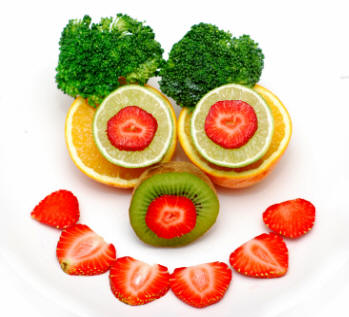Brain Food: What to Eat in Order to Study More Effectively

Brain Food to Smile About
It’s almost time for the dreaded fall midterms. Somehow, midterms manage to be even more stressful than finals. Maybe it’s because of the time of year they fall, which is easily the most beautiful time to be living in Boston. You just want to spend time outside walking on the esplanade, looking at the beautiful red and orange leaves on the trees that line the river and watching the rowing teams pass you by. Well, it may actually be beneficial to take some time out of your studying to take a stroll along the river, or to just sit on a bench for a little while. In fact, take some time to picnic this fall with some brain food, because studies show that it will enhance your studying experience.
Some of these brain foods include foods that you’d expect. These are the foods that your mom has been forcing down your throat, whether you like them or not, for as long as you can remember. But take a step back and think about why. Berries, for example, provide neurological benefits. They have a ton of antioxidants which will protect you from bacteria that make you sick when you’re stressed. Berries mediate signaling pathways that are involved in cell survival, and they increase the neuroplasticity, neurotransmission and calcium buffering properties of the brain, all related to aging, and in turn, memory and behavioral changes.
There have been books after books, articles after articles, and studies after studies done on why eating nutritious foods is actually beneficial to more than just your weight and appearance. They change the chemistry in your brain, allowing for more capacity to remember what you are studying, and to retain that information. All of these books, articles, and studies agree that there are some key recommended nutrients in the foods that are classified as brain food. These nutrients are omega-3 fatty acids, vitamin E, fiber, folate, polyphenols and monounsaturated fats and they all affect the cognition potential of your brain!
The point is, your brain reacts to what you eat, so you should eat foods that make your brain react in a way that enhances your studying. Eating fish high in omega- 3 fatty acids increases the production of serotonin and lowers your chances of becoming depressed. Docosahexanoic acid (DHA) is one of the most abundant forms of omega- 3 fatty acids found in the cell membranes in the brain and therefore the brain depends on our consumption of dietary DHA. Add some salmon, and some walnuts which are also high in these omega- 3 fatty acids. Flavanoids in green tea and chocolate improve your cognitive function, as well, along with the Vitamin E in asparagus, avocado, nuts and spinach that reduces cognitive decay, or memory loss.
So here is a list of the foods to bring on your picnic: berries, salmon, walnuts, green tea, chocolate, asparagus, avocado, almonds, cashews, hazelnuts, pecans, Brazil nuts, and spinach. Add in a source of calcium from some cheese and make yourself a delicious salad for your picnic. Stop by your favorite chocolate shop on the way back, and you’ve got your fill of healthy, nutrient- rich, brain foods to help enhance your midterm studying. Good luck!
Melissa Heller
Sources:
Brain Foods: the effect of nutrients on brain function -NIH
Berry Fruit Enhances Beneficial Signaling in the Brain –Journal of Agricultural and Food Chemistry
Nutrients that affect cognitive function -NIH